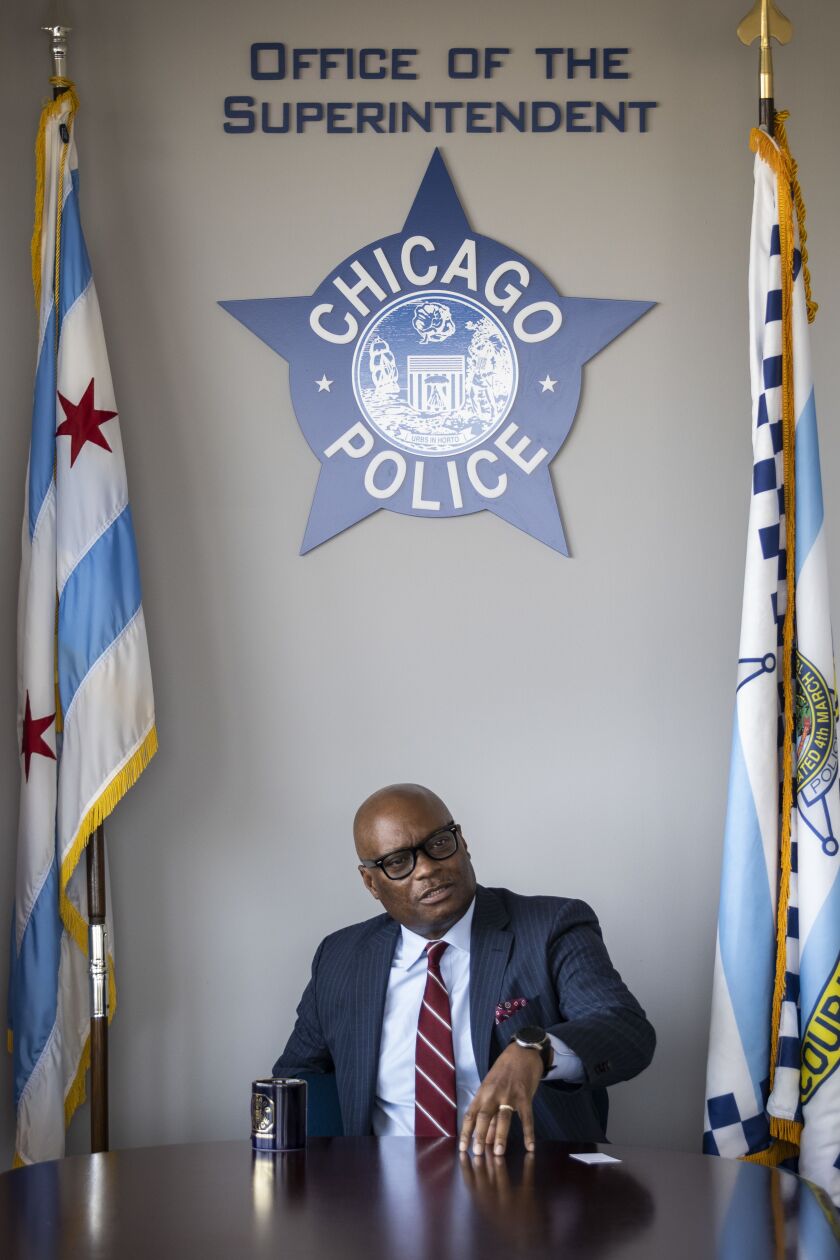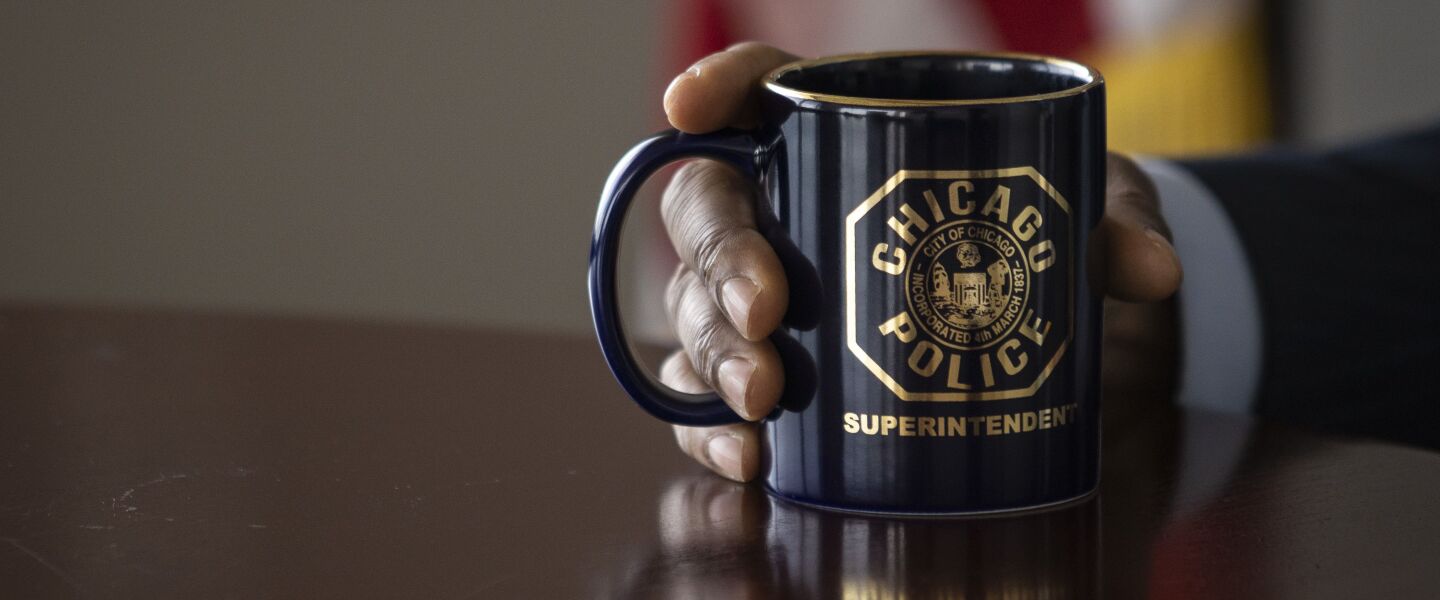David Brown has been at the helm of the Chicago Police Department for less than a month, but he has his sights on history.
He wants 300 murders or less on the year, a level of violence Chicago hasn’t seen since 1957.
With the traditionally bloody summer months approaching, Chicago has already seen more than 175 killings this year — a 12% uptick from 2019. On average, the city has recorded more than 500 murders per year over the past decade.
“Why can’t we do it? If you say ‘How can we do it?’ I’ll say ‘Why not Chicago?’” Brown said in an interview with the Chicago Sun-Times this week. “I believe it. I believe we can. I think there are strategies that involve community policing and some enforcement that can help us achieve that goal, but we first have to believe we can before we start achieving.”
“I have this belief system that sometimes comes across as unbelievable, but I’ve seen great achievement. I’ve seen it happen in others. And so, if we don’t believe first, it will never happen.”
In 2014, under Brown’s watch, Dallas saw the fewest murders in more than 80 years, according to the Dallas Morning News. Murders in Dallas, however, have increased in recent years. The city saw more than 200 killings in 2019, the most in a year in more than a decade.
Along with his aspirations in reducing the city’s entrenched violence — one of Brown’s “moonshot” goals — the new superintendent has kept his focus on the department’s consent decree, the court order spurred by the murder of Laquan McDonald that mandates a series of reforms.
In 2016, while chief of the Dallas Police Department, Brown examined police consent decrees in place in other major American cities and implemented those changes in Dallas.
Brown said he made the changes in consultation with union and departmental leadership. He said his pitch to them: “Why should we have someone order us through a court order or a lawsuit and make us do what’s right for the community?”
“The consent decree, to me, is a low standard. We should be trying to achieve above and beyond what the consent decree requires so that our community can again have trust in us.”
The Fraternal Order of Police, which represents rank-and-file CPD officers, has been without a contract for nearly three years. Last week, John Catanzara won a runoff election against union president Kevin Graham, whose administration was highly resistant to the consent decree.
Brown said he hopes to persuade Catanzara the same way he won over union leadership in Dallas. He will likely have his work cut out for him. Speaking before the Chicago Police Board in 2018, Catanzara called the consent decree “nonsense.” Catanzara is one of the most frequently disciplined officers in the CPD and is believed to be the first FOP president to be elected while stripped of his police powers.
Brown took over for Charlie Beck, the former chief of the Los Angeles Police Department who oversaw the CPD on an interim basis after Mayor Lori Lightfoot fired former Supt. Eddie Johnson a month before he was to retire.
Lightfoot said she ousted Johnson after he lied to her about an embarrassing drinking-and-driving incident in October. The Office of the Inspector General opened investigations into Johnson as well as several other department employees for allegedly covering up Johnson’s actions.
Last month, Lightfoot said she was “extremely unhappy” that the findings haven’t been released yet.
Asked about the progress of the OIG investigations, Brown said: “I have received briefings but I don’t know the status. But my assumption from my briefings is that we’ll soon have the final report, but I don’t have a date.”
And though the permanent superintendent left the job under a cloud, Brown says he doesn’t have time to fret over the past.
“I’m on the clock,” he said. “I’ve got a big goal, historical lows in violent crime, and I think I will serve the people of Chicago real well if I focused on that and not on past incidents.”
Beck and Brown have known each other for years. Brown said Beck imparted some valuable wisdom before he returned home to Los Angeles.
“Stay true north,” Brown recalled.
“Ethical character is something that applies no matter where you are. Treating people with respect applies. Making sure you remember who the bosses are, which are the people in the community, taxpayers who pay our salaries with their hard-earned money. And so true north is kind of all those things. Just stay true north and don’t focus so much on the political landscape.”
Beck, while serving as interim superintendent, did away with the department’s much-maligned merit promotions system, a move that irked some African American and Latino aldermen. Brown said the system won’t come back on his watch, but he’s “looking for another way to create diversity in a way that is much more appreciated here than the merit system was.”
It took no time at all for Brown to learn how deeply intertwined policing and politics are in Chicago. The day after he was sworn in as superintendent, he found himself apologizing to several aldermen from the North and Northwest sides who were angry Brown didn’t tell them about a plan that temporarily moved officers from their wards to the West Side.
“I took no disrespect at all with their sentiment,” Brown said, adding he told the aldermen: “The tougher you are on me, I think the better outcomes you’ll get from this department.”








